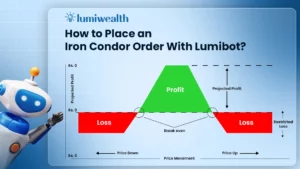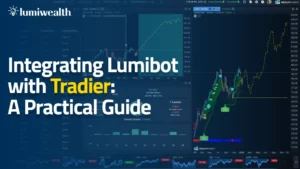
Introduction to the AI revolution in trading and investing
Artificial Intelligence (AI) Like ChatGPT is revolutionizing almost every industry, and the trading and investing sector is no exception. From algorithmic trading systems that analyze vast amounts of data to predictive models that forecast market trends, AI technologies are transforming the way people invest and trade. The rapid advancements in AI and machine learning have significant implications for brokers and traders, with some experts predicting a looming job crisis in the industry.
The financial sector has always been a frontrunner in adopting cutting-edge technologies, and AI is no exception. In this article, we will explore the impact of AI on trading and investing, with a particular focus on ChatGPT, algorithmic trading, and the potential job crisis for brokers and traders. We will also discuss how industry professionals can adapt to the AI-driven landscape and the future prospects of AI in trading.
Understanding ChatGPT and its applications in finance
ChatGPT is a state-of-the-art language model developed by OpenAI. It is based on the GPT (Generative Pre-trained Transformer) architecture, which is designed to understand and generate human-like text based on the input it receives. ChatGPT has a wide range of applications, from customer service and virtual assistants to content creation and data analysis. In the financial sector, ChatGPT can be leveraged to enhance various aspects of trading and investing.
For instance, ChatGPT can be used to analyze financial news, social media sentiment, and market data to generate insights and trading signals. It can also assist in creating personalized investment advice and generating financial reports. Additionally, ChatGPT can be integrated into customer service platforms to provide instant support and guidance to clients, improving the overall customer experience.
Algorithmic trading: Definition and benefits
Algorithmic trading, also known as algo trading or automated trading, is the use of computer algorithms to execute trades at high speed and with minimal human intervention. These algorithms are designed to analyze market data, identify trading opportunities, and execute orders based on pre-determined rules and strategies. Algo trading has grown in popularity due to its numerous benefits, including:
- Speed and efficiency: Algorithmic trading systems can process and analyze large volumes of data in real-time, allowing for faster decision-making and trade execution.
- Reduced human error: By automating the trading process, algo trading reduces the likelihood of errors caused by human emotions or fatigue.
- Cost savings: Automated trading systems can execute trades at the best available price, minimizing transaction costs and ensuring optimal execution.
- Diversification: Algo trading enables traders to invest in multiple markets and asset classes simultaneously, thereby spreading risk and enhancing portfolio performance.
- Customization: Traders can design and implement their own unique strategies based on their risk tolerance, investment objectives, and market insights.
The growing popularity of algo trading in the financial industry
The adoption of algorithmic trading has been growing steadily over the past few years, with more and more financial institutions and individual traders realizing its potential. According to a report by MarketsandMarkets, the global algorithmic trading market is expected to grow from $11.1 billion in 2019 to $18.8 billion by 2024, at a CAGR of 11.1% during the forecast period.
This rapid growth can be attributed to several factors, including the increased availability of high-speed internet, advancements in computing power, and the growing sophistication of AI and machine learning algorithms. Furthermore, regulatory changes, such as the MiFID II (Markets in Financial Instruments Directive II) in Europe, have encouraged greater transparency and competition in the industry, providing a conducive environment for the growth of algo trading.
Impact of AI and machine learning on traditional brokers and traders
The rise of AI-driven technologies like ChatGPT and algorithmic trading has significant implications for traditional brokers and traders. As these advanced systems continue to gain traction, the demand for human expertise in trading and investing may decline, leading to a potential job crisis in the industry.
The primary concern is that AI-powered systems can perform tasks more efficiently and accurately than human traders, making them increasingly redundant. For example, algorithmic trading systems can execute trades at lightning speed, analyze vast amounts of data, and adapt to changing market conditions in real-time. Similarly, ChatGPT can provide instant, personalized investment advice and generate comprehensive financial reports with minimal human input.
As a result, job roles that once required significant human expertise and judgment, like stock brokers and traders, may be at risk of being displaced by AI-powered systems.
Major players adopting AI in trading: JP Morgan and Morgan Stanley
The growing adoption of AI in trading is evident from the investments made by major financial institutions like JP Morgan and Morgan Stanley. JP Morgan has been investing heavily in AI technologies, such as natural language processing, machine learning, and data analytics, to enhance its trading operations and improve client services. The bank has also partnered with AI startups to develop new trading algorithms and risk management tools.
Similarly, Morgan Stanley has established an AI-driven trading unit called “AI Core” to develop and deploy machine learning models for trading and investment management. The bank is also working on AI-powered chatbots to provide personalized investment advice and improve customer service.
These examples illustrate the growing importance of AI in the financial sector and the willingness of major players to adapt to the changing landscape.
The looming job crisis for brokers and traders
As AI technologies continue to reshape the trading and investing landscape, many traditional brokers and traders may find themselves facing a job crisis. According to a report by the World Economic Forum, nearly 1.3 million jobs in the global financial sector could be at risk due to AI and automation by 2026.
To stay relevant in this rapidly changing environment, brokers and traders must adapt their skill sets and embrace the AI revolution. This may involve learning about AI technologies, understanding their applications in trading and investing, and developing new strategies that leverage the power of AI and machine learning.
How brokers and traders can adapt to the AI-driven landscape
For brokers and traders to remain competitive in the AI-driven landscape, they must focus on acquiring new skills and knowledge. Here are some suggestions to help them adapt:
- Learn about AI and machine learning: Understanding the fundamentals of AI, machine learning, and algorithmic trading is critical for staying relevant in the industry. Brokers and traders should invest time and resources in learning about these technologies and their applications in trading and investing.
- Embrace new technology: Rather than resisting AI-driven systems, brokers and traders should seek to incorporate them into their existing workflows. This could involve using AI-powered tools for data analysis, trade execution, or risk management.
- Develop new strategies: As AI continues to transform the trading and investing landscape, brokers and traders must devise innovative strategies that leverage the power of AI and machine learning. This could involve creating custom trading algorithms or developing new risk management techniques.
- Focus on value-added services: To differentiate themselves in the market, brokers and traders should concentrate on providing value-added services that AI-powered systems cannot replicate. This could include offering personalized investment advice, building strong client relationships, or providing expert market insights.
Future prospects of AI and machine learning in trading and investing
The future of AI and machine learning in trading and investing looks promising, with these technologies expected to drive significant innovation and efficiency gains in the industry. As AI algorithms become more sophisticated and capable, they will likely enable new trading strategies, improved risk management, and more accurate market predictions.
Furthermore, the integration of AI with other emerging technologies, such as blockchain and the Internet of Things (IoT), could lead to the development of entirely new financial products and services. For instance, AI-driven smart contracts could facilitate automated, transparent, and secure transactions in the financial markets.
Conclusion: Embracing the AI revolution for a sustainable trading career
In conclusion, the AI revolution in trading and investing is well underway, with technologies like ChatGPT and algorithmic trading transforming the industry landscape. While these advancements pose challenges for traditional brokers and traders, they also present opportunities for those who are willing to adapt and embrace the new reality.
By acquiring the necessary skills and knowledge, embracing new technologies, and focusing on value-added services, brokers and traders can ensure their long-term success in the AI-driven trading and investing landscape. The future of trading lies in the hands of those who are agile, forward-thinking, and ready to ride the wave of AI innovation.




